Strategic Partnerships for Sustainable Development

At NADBank, we believe in the transformative power of partnerships. Our commitment to sustainable development transcends borders, bringing together diverse voices and expertise to create synergies that drive lasting change in the communities.
We have built a dynamic network that includes federal, state and municipal governments, the private sector and international organizations, as well as academic and financial institutions. This unique ecosystem fosters a collective responsibility to the environment and society, where each partnership is a catalyst for progress.
Our partnerships are more than just brick and mortar projects—they are bridges that connect current challenges with innovative solutions for the future. Together, we are laying the foundation for economic resilience and environmental stewardship in the region.

Building Bridges Beyond the Border
Read about some of our more recent partnerships to create a more sustainable future in the border region.
United States

Texas Water Development Board (TWDB)
TWDB and NADBank have successfully co-funded the construction of several water and wastewater systems, mainly providing first-time service to “colonias” along the Texas-Mexico border. Generally, TWDB finances the water distribution or sewer system and NADBank funding is utilized to connect the homes to those systems.
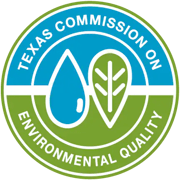
Texas Commission on Environmental Quality (TCEQ)
NADBank and TCEQ established a binational fund within NADBank to support air quality monitoring actions in the air basin formed by the Municipality of Juarez, Chihuahua, El Paso County, Texas and Doña Ana County, New Mexico. NADBank and TCEQ provided an initial contribution each to cover the operation and maintenance of existing monitoring stations, as well as making potential investments in new infrastructure. In addition, TCEQ has collaborated with NADBank on various studies, including an impact assessment of the environmental infrastructure projects funded by the Bank between 1995 and 2020 in the Rio Grande basin, from El Paso, TX to the Gulf of Mexico.
Arizona-Mexico Commission
For six decades, the Arizona-Mexico Commission (AMC) has focused on its mission to improve the economic prosperity and quality of life for all Arizonans through strong, public/private collaborations in advocacy, trade, networking and information. The work of the binational committees drives this mission, acting as industry and community advocates in partnership with the Comisión Sonora-Estados Unidos (CSEU). NADBank is a member of AMC and actively works with the commission to identify possible projects for financing.

Arizona Department of Environmental Quality (ADEQ)
NADBank joined forces with the Arizona Department of Environmental Quality (ADEQ) and the Sonora State Water Commission (CEA), among many other public entities, to develop a strategy and implement a variety of measures aimed at mitigating and permanently eliminating transboundary wastewater discharges to the United States. With technical support from ADEQ, a permanent pipe system was implemented to move water between the lower and upper lagoons at the treatment plant to relieve the overload pressure that was causing backflows and spills in the sewer system in Naco, Sonora.
Mexico
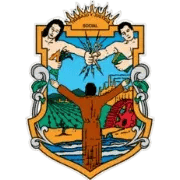
Government of the State of Baja California
The State of Baja California, working closely with NADBank, the Mexican Ministry of Finance and Public Credit (SHCP) and independent consultants, developed a sustainability financing framework and structured a financing transaction in accordance with best international practices, as well as national policies and state development plans. With technical assistance from NADBank, the State obtained the requisite second-party opinion on its sustainability framework and a credit rating for the proposed transaction. In January 2023, the Government of Baja California became the first Mexican border state to take advantage of this type of financing instrument by contracting a US$150-million loan with NADBank to finance the implementation of priority water and wastewater projects throughout the state over a three-year period.
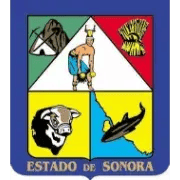
Government of the State of Sonora
NADBank is working in collaboration with the Government of Sonora to develop its sustainable financing framework aimed at supporting investments in water and wastewater projects identified as priorities for communities in northern Sonora, which NADBank could potentially finance.
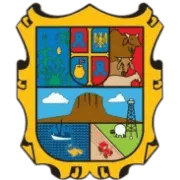
Government of the State of Tamaulipas
NADBank is collaborating with the Government of Tamaulipas to develop its sustainable investment and financing framework, as well as to structure a sustainable financing mechanism. Through this framework, NADBank could provide funding for drinking water and wastewater projects in municipalities in northern Tamaulipas, helping to deliver quality services and improve the efficiency of water resource management.
International
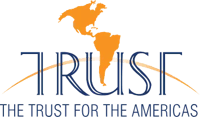
The Trust for the Americas
NADBank partnered with The Trust for the Americas, a non-profit organization affiliated with the Organization of American States (OAS), to develop the Skills for Sustainability (S4S) program for El Paso, Texas, and Juarez, Chihuahua. This binational workforce development initiative provides training and empowers future water utility technicians to help meet the demand for skilled workers in the water industry. With the support of NADBank, the Trust commissioned a market survey to determine the skills required for entry-level-jobs in the water industry, as well as identified local partners, sources of curriculum content and potential employers to mentor and/or hire program graduates. At the end of the S4S program cycle launched in mid-2023, a total of 104 people graduated in El Paso and 242 people in Ciudad Juarez, with 288 securing jobs in the water industry.

Global Green Growth Institute (GGGI)
NADBank has been working in collaboration with GGGI to optimize its internal procedures and practices to better respond to current market trends in green finance. Furthermore, the Bank has worked on updating its Green Credit Framework and on developing financing structures and frameworks for cities and projects that are resilient and deliver measurable environmental benefits.
















